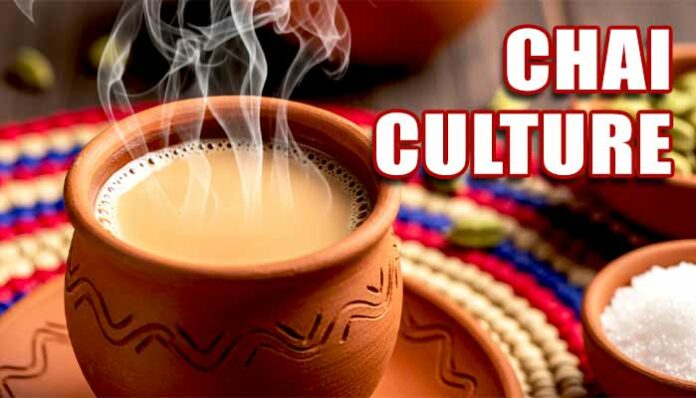On International Tea Day, Pakistan honors a tradition that goes far beyond just brewing tea leaves in hot water. Tea is the very essence of our hospitality, served warmly alongside heartfelt stories, bright smiles, and meaningful connections. Whether it’s shared on dusty village lanes or bustling city streets, Chai Culture remains the common thread that brings people together, sparks conversations, and creates lasting bonds across all walks of life.
Chai as a National Symbol of Hospitality
Tea is very close to the hearts of almost every Pakistani, no matter how old they are or where they come from. Offering a cup of chai to guests is a warm and welcoming custom that shows kindness and respect. Whether it’s a happy celebration, a family meeting, or a business talk, tea is always there. People drink it everywhere at home, at work, in shops, and even while traveling. In short, Chai Culture is a part of our daily life and culture that we truly cherish.
Muhammad Ramzan is well-known at a busy tea stall in Pipli town, Vehari, where he has been making tea every day for 18 years. He says, “With the prices of milk and sugar rising, I now sell each cup for Rs 70. Even so, people keep coming because they don’t want to miss their chai.” He also mentioned that before, he used to offer half cups at a cheaper price to help those who couldn’t pay for a full one.
In Multan, tea at popular restaurants and cafés now costs between Rs 250 and Rs 300 per cup. Although prices have gone up a lot, people still love to sit down and enjoy their chai.
Although tea prices have increased, many people still visit this place to enjoy their cup. Ayesha Saleem, an MPhil student, shares, “We often come here with friends. Drinking tea helps us feel calm and comfortable.”
Every day, tea stalls across the country stay busy with customers. These small businesses provide work to many people from tea makers and helpers to waiters and milk suppliers. For many families, running a tea stall is their main way to earn a living and support their home. This thriving chai culture plays an important role in livelihoods too.
A Cup that Connects Hearts
Tea is more than just a drink it’s a reason for people to come together. In villages, men gather on ‘charpoys’ to share stories and enjoy tea with laughter. In the cities, young people visit tea cafés to talk, study, or express themselves through poetry. During difficult times, tea brings comfort, and in happy moments, it adds to the joy, says Riaz Lodhi, a government worker.
Even as tea prices climb higher, people’s passion for chai never fades. Pakistan spends millions of dollars each year to import tea, and still, the demand keeps rising steadily.
A Daily Cup of Strength
For Abdur Rehman, a daily wage worker, tea is a little comfort during hard times. He says, “After losing my job, I had to cut back on many things, but I never missed my daily cup of chai. It gives me strength to keep going.”

